The best PlayStation 4 exclusives, ranked
You can attribute much of the PlayStation 4’s amazing run of the last seven years to its exclusive titles.
While Nintendo remains the most prolific producer of high quality exclusive console games, Sony amassed considerable might during the PlayStation 4′s run, acquiring acclaimed studios that would go on to produce titles that would sweep awards shows. It’s why Microsoft has invested in its own studios, including last year’s atomic announcement that Xbox now owns Bethesda Game Studios, the creators of the “Elder Scrolls” series.
We’re pretty much at the end the PlayStation 4′s life cycle, so reporters Elise Favis and Gene Park reminisced about their 10 favorites from the now-aging but still wildly popular platform.
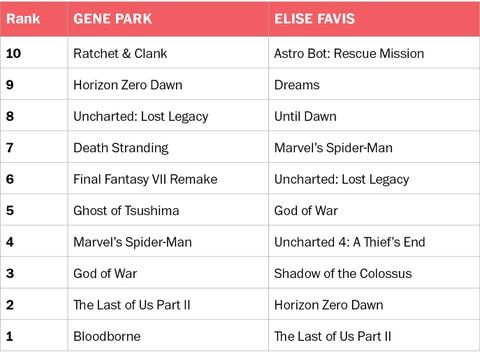
2015
Bloodborne
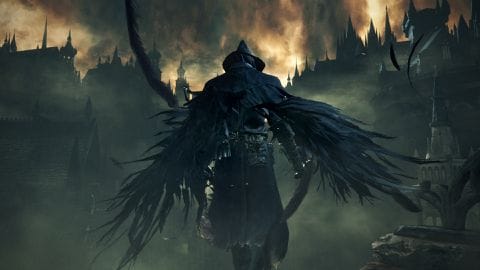 (Sony Interactive Entertainment)
(Sony Interactive Entertainment) Gene Park: “Bloodborne” was a game so good, it helped me completely get over my last, serious and long-term relationship. It was early 2015, and there were going to be some big changes in our lives. I was looking to move out of Hawaii, while she wanted to expand her local business’s footprint. Our relationship was already on the rocks before “Bloodborne” released, and we’d already had some legendary battles and arguments between us, you know, the kind that end in screaming matches and tearful apologies.
I remember the setting of our last fight so clearly. It was outside her store, and we both sat silent in my car. She told me, “I think it’s really over.” I merely said, “OK, so it is.” She walked out, and that would be the second-to-last time I’d see her. Then I went home to play “Bloodborne” for the next few weeks, completely forgetting why we even fought for that last time. It wasn’t important anymore. It was already over, and “Bloodborne” was here.
It wasn’t until early April when I saw her again for the last time. It was the morning of my flight to Washington, D.C. She texted me wondering if she could say goodbye. We met that April afternoon in my parking garage by Honolulu Harbor, the waves gently crashing against the docks. We hugged each other one more time, and this was the last time we’d see, or even hear, each other again. She went on to focus on her business. I boarded a flight to Washington, D.C., ready for the next stage in my life, and dreaming of the “New Game Plus” file of “Bloodborne” that I’ll need to set up once I get settled in my new life.
What else is there to say about “Bloodborne,” the sole reason I purchased a PlayStation 4? It’s given me more than I ever bargained for.
2015
Until Dawn
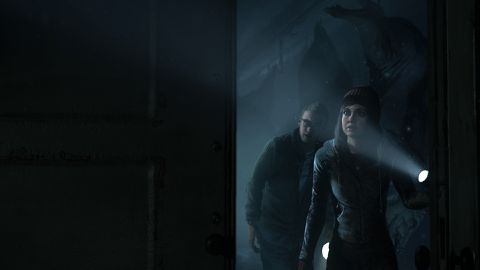 (Sony Interactive Entertainment)
(Sony Interactive Entertainment) Elise Favis: I remember seeing trailers for “Until Dawn” before its release, and I kept thinking it could be really good, or really bad. As a huge horror fan, the idea of a playable slasher movie was incredibly compelling, so long as the scares hold up. Thankfully, they did. And unlike most horror games, “Until Dawn” shouldn’t be played alone.
Hear me out: “Until Dawn” is one of the best multiplayer horror games out there. Sure, multiplayer isn’t actually built in to the game, but it’s best played with friends by passing around a controller whenever the perspective switches to another character. It tells the story of teenagers up in a secluded cabin in the woods, who find terrors in the area that connect to a deep and years-old mystery. The Telltale-like format, which lets you control the narrative by choosing the decisions of characters, adds a ton of replay value, too. Characters can die from a single misstep, making this “unofficial party game” not just a hoot, but a competitive experience between friends to test who can survive longest.
2016
Ratchet & Clank
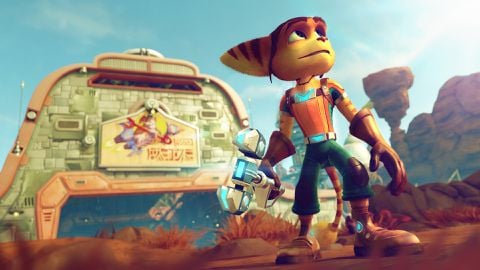 (Sony Interactive Entertainment)
(Sony Interactive Entertainment) Gene Park: Insomniac’s only PS4-exclusive “Ratchet and Clank” title was also one of the last, bad examples of movie license tie-in games in recent memory. I say bad in that the writing was pretty horrendous thanks to it skewing closely to match the rewritten characters of the film. Both heroes lost their respective attitudes, Ratchet being a pessimistic douchebag, and Clank being the pun-filled realist with an existential crisis. Instead, Ratchet was chiseled into a happy-go-lucky fellow who dreams of exploring the galaxy, and Clank became almost a blank slate. The game even tried to make Captain Quark, one of the most self-absorbed beings in the galaxy, a sympathetic creature. The movie, and this game’s story, are a betrayal of the spirit of the original games.
[Video games deserve better than parachuting coverage from reporters that don’t get it]
Despite all that, “Ratchet and Clank” for PS4 proves that Insomniac Games can still make the best platformers in the business — outside of Nintendo. While the guns weren’t as wildly imaginative as they’ve been in the series, they’re still visually exciting displays of firepower and wacky science. The levels were remade from the 2002 original game, and the series had never looked better. This one’s last on my list because of its numerous pitfalls in storytelling, but its gameplay and level design still place it among the best.
2016
Uncharted 4: A Thief’s End
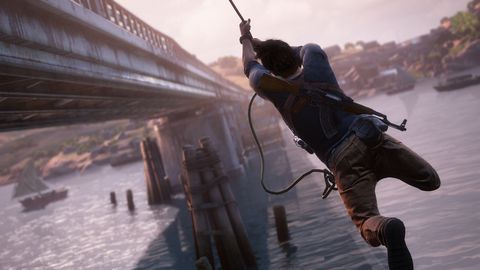 (Sony Interactive Entertainment)
(Sony Interactive Entertainment) Gene Park: “The Lost Legacy” is my “Uncharted” series stand-in for this list, but it doesn’t mean I don’t remember this game fondly. While the story of Nathan Drake’s long-lost brother Sam failed to grip me, its gameplay was the greatest evolution of Naughty Dog’s experiments in cinematic storytelling. New gameplay elements include legitimate stealth action, open-ended battle arenas, and a wide, expansive open-world area complete with vehicles and bandit camps. “Uncharted 4” isn’t in my top 10, but it’s still an incredible achievement in the action-adventure genre.
Elise Favis: The level of detail in “Uncharted 4” blew me away. Naughty Dog brings a certain smoothness to animations, transitions and gameplay that makes its games feel polished and rewarding to play. “Uncharted 4” does not disappoint. This final chapter of Nathan’s story within the treasure-hunting action adventure series captures what the franchise does best and builds upon it: Impressive action set pieces are complemented by fun rope-swinging, chaotic gunfights, car chases and massive hub worlds ripe with secrets.
It’s also an homage to both “Uncharted” and PlayStation, filled with Easter eggs like Nathan and Elena playing “Crash Bandicoot” (which can be controlled entirely by the player) on an original PlayStation early in the game.
2017
Horizon Zero Dawn
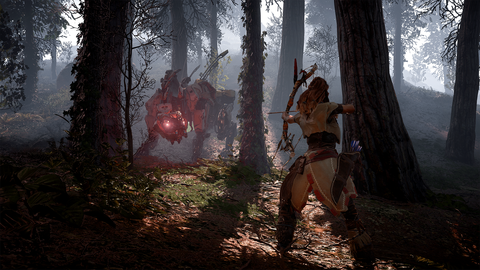 (Sony Interactive Entertainment)
(Sony Interactive Entertainment) Gene Park: Launched around the same time as “The Legend of Zelda: Breath of the Wild,” this game had a rough go catching some eyes at launch, including mine. But once I settled down and powered through its pretty humdrum opening hours, Guerrilla Games started to spin a pretty compelling science-fiction yarn that touched on more topics than I thought it ever would, including how legacies are formed, and how cultures can evolve over centuries. There’s still so much untapped potential for this universe, including hopefully exploring characters a bit more interesting than the lead Aloy, but “Horizon” and its beautiful art design stand as tall as the gorgeous, dinosaurlike Tallneck creatures that roam this game’s Midwestern apocalypse.
Elise Favis: I have never played through a universe quite like “Horizon Zero Dawn.” Set in the far-flung future, humanity has regressed after modern civilization fell at the hands of hostile technology. Those robots bear resemblance to massive dinosaurs, who roam the land as apex predators. The science fiction story is excellent, weaving a tale I won’t soon forget, but the gameplay gripped me just as effectively. I loved hunting, stalking and outsmarting the ferocious beasts that roam the many corners of this world.
2017
Uncharted: The Lost Legacy
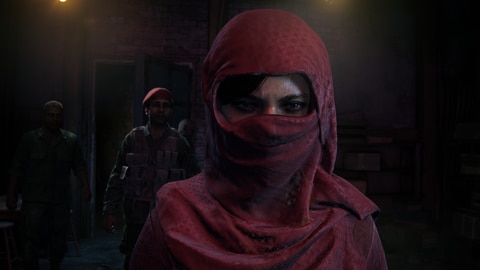 (Sony Interactive Entertainment)
(Sony Interactive Entertainment) Gene Park: In gameplay, it’s as good as “Uncharted 4” was, but it trims the excess and tells a better-paced character story. “The Lost Legacy” was the “Uncharted” game that made me wonder if Chloe Frazer, the star of this title, is the real draw for me in the franchise, as my other favorite game is “Uncharted 2,” which also featured her prominently. Nonetheless, “The Lost Legacy” has everything the fourth adventure had, complete with the stellar pacing that “Uncharted 2” perfected. This is perhaps the best in the franchise.
Elise Favis: “The Lost Legacy” is a prime example of Naughty Dog’s writing excellence, particularly when it comes to people and relationships. In many Naughty Dog games, there’s a “buddy system,” where the gameplay and narrative often centers on two characters during key moments. For “The Lost Legacy,” it’s about Chloe and Nadine, two characters who dislike one another from the start and must work together toward a common goal. Though somewhat of a mini sequel (think “Spider-Man: Miles Morales), it has the quality you’d expect from a full-fledged Triple A title, even borrowing concepts that worked wonders in “Uncharted 4,” including the hub world design for exploration.
2018
Shadow of the Colossus
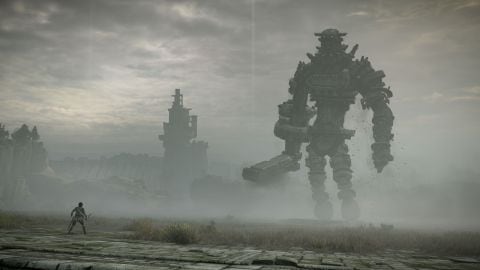 (Sony Interactive Entertainment)
(Sony Interactive Entertainment) Gene Park: This isn’t on my list because I wanted to give more room for other PS4 exclusives and the original game debuted on the PlayStation 2. But if I considered this as a PS4 game, “Shadow of the Colossus” is the only title on this list that could topple “Bloodborne” for me. This was the game that cemented developer Bluepoint Games as the masters of remasters and remakes. Team Ico’s original PlayStation 2 hit pushed that old console to the limits, and Bluepoint makes it look as beautiful as it always should’ve been. If you’ve never played “Shadow of the Colossus” before, the PS4 remake comes with my absolute highest recommendation.
Elise Favis: Bluepoint’s remakes are so polished they almost feel like new games. Rebuilt from the ground up, “Shadow of the Colossus” is a reimagining of the PS2 classic that tells the story of a young boy who must battle grandiose beasts to save a young girl’s life. With completely revamped graphics and enhanced music, the enormous monsters and the sullen world come to life more than ever before.
2018
Astro Bot: Rescue Mission
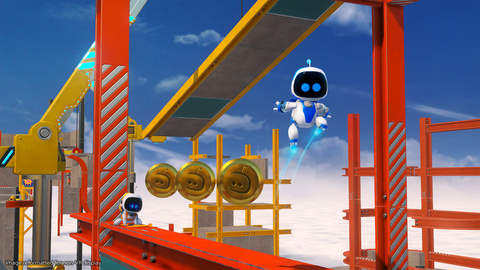 (Sony Interactive Entertainment)
(Sony Interactive Entertainment) Gene Park: This isn’t on my list because I haven’t spent as much time with the PlayStation VR headset. But I did spend a lot of time with “Astro,” probably the most innovative platformer since “Super Mario 64,” and I don’t say that lightly. All VR developers should look to “Astro Bot” as an exemplar of how to interpret classic gaming genres for the next dimension.
[‘Astro’s Playroom’ review: A delightful jaunt through PlayStation history]
Elise Favis: Gene is spot on when he compares “Astro Bot” to “Super Mario 64.” “Astro Bot” cleverly translates that classic Mario platformer feel to virtual reality in ways that no previous developer has before. I remember feeling skeptical about a virtual reality platformer (why would I want to play that genre in VR, a technology best used for first-person immersive experiences?), but was completely turned around in the span of five minutes with “Astro Bot.” Its charm, ingenious level design and fun new ways to interact with platforming make it one of the best experiences available on PlayStation VR. The game was such a hit that “Astro” makes a phenomenal return on the PlayStation 5 with the new, introductory game for console owners, “Astro’s Playroom,” to get them acquainted with the DualSense controller.
2018
God of War
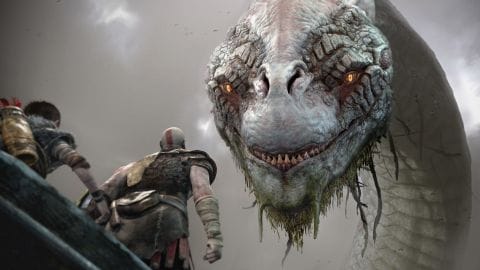 (Sony Interactive Entertainment)
(Sony Interactive Entertainment) Gene Park: More than just a father and son story, the new “God of War” series expanded the lore and deepened Kratos’s journey in ways many of us couldn’t have foreseen. Christopher Judge’s performance as the god of war is among the best in the industry, and the despite the “daddening” of video games being an old concept, the writing really helped players understand Kratos’s relationship not just with his son, but also both characters’ relationship with Atreus’s mother. That alone makes this game a triumph, on top of the excellent world building, exploration and combat.
[Dad of War: What Kratos taught me about being a father]
Elise Favis: “God of War” on PlayStation 4 was my introduction to the long-running franchise. I was met with an older, somewhat subdued Kratos who still has so much to learn and emotional pain to untangle. Though you’re playing as Kratos and guiding his young son, Atreus, through a dangerous world, it felt more like the opposite. Atreus was teaching Kratos, for example, to be a better person, guiding him and helping him understand what it means to be human. Seeing this relationship unfold, and how the two change over the course of the game, is the beauty of “God of War.”
2018
Marvel’s Spider-Man
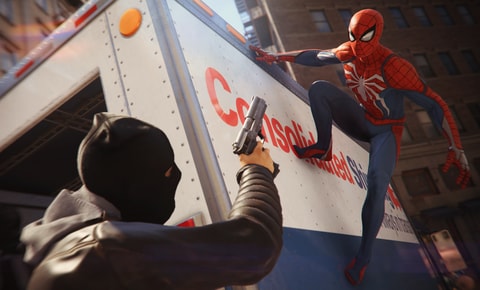 (Sony Interactive Entertainment)
(Sony Interactive Entertainment) Gene Park: I’ve said it before and I’ll say it again: This is a truer-to-Spidey story than any of the films, including the Disney ones and the Sam Raimi works. Spider-Man is a saga of a character, and his tangled web of relationships and responsibilities is best told in longer-form mediums, like comic books, and as Insomniac Games taught us, video games. And even if you thought the story didn’t live up, the swinging and combat mechanics already lifted “Spider-Man” to the title of the very best comic book video game.
Elise Favis: I was battling fierce depression when “Marvel’s Spider-Man” released. I wasn’t sure I could play it. But within the first few moments, Peter Parker’s infectious optimism and the colorful world of Manhattan drew me in. It was a joy to swing through the city and fight off baddies with a slew of addictive powers and fun combos.
[Sony’s big PS5 bet is that what’s good for developers will be great for players]
So many previous “Spider-Man” games just didn’t get web-swinging right, either due to design decisions or technology limitations, with only “Spider-Man 2” coming close. But “Marvel’s Spider-Man” on PS4 elevates traversal, becoming the best I’ve seen in a video game to date. Returning to other open-world games afterward, like the modern entries of the “Assassin’s Creed” series, became much more difficult due to their clunkier traversal.
2019
Death Stranding
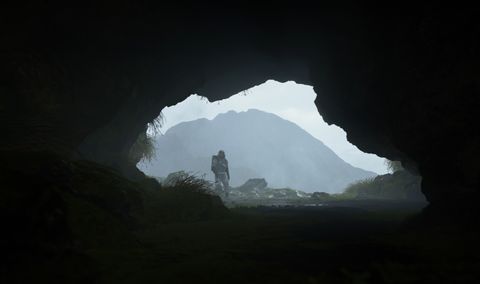 (Sony Interactive Entertainment)
(Sony Interactive Entertainment) Gene Park: When I want to be distracted with serenity, I play “Death Stranding.” Hideo Kojima’s video game post-apocalypse about deliveries in a locked-down, disconnected society was once thought of as yet another oddball science-fiction concept. The year that was 2020 proved him to be gaming’s most prescient creator. But despite how real-world horrors have almost caught up with those in the game, I still find the title to be a relaxing walk in the park. Maybe it’s because the America Kojima depicts is so aggressively not the land we know, looking far more like the hills of Iceland than Colorado. There’s a sense of new wonder that he wouldn’t have been able to replicate if he mirrored America’s actual landscape. “Death Stranding” is an incredible game because of the answers it continues to offer within its confounding interrogation of ourselves.
[We are living in Hideo Kojima’s dystopian nightmare. Can he save us?]
Elise Favis: There is no denying that “Death Stranding” is impressive. The atmosphere is haunting and the presentation makes it feel like a blockbuster cinematic movie. It’s the most high-end “walking simulator” you could ever play, which is already fascinating on its own. But it just isn’t for me. I wanted to like “Death Stranding, but the gameplay — which often involves balancing boxes upon boxes on your back as you traverse open environments — felt more frustrating than engaging.
2020
Dreams
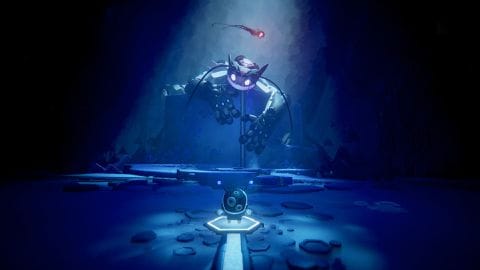 (Media Molecule)
(Media Molecule) Elise Favis: Media Molecule’s “Dreams” is whatever you want it to be. This game is all about creation and building something from nothing. In “Dreams,” you make interactive experiences by using accessible tools. While an actual game designer programs lines of code, “Dreams” translates that into an accessible form with sliders, menus and brushes so that anyone can create a video game. The result is one of the best experiences out there for user creation, giving players an incredible amount of freedom. It’s equally fun to spend a couple hours playing the impressive games others have made on “Dreams.”
2020
Final Fantasy VII Remake
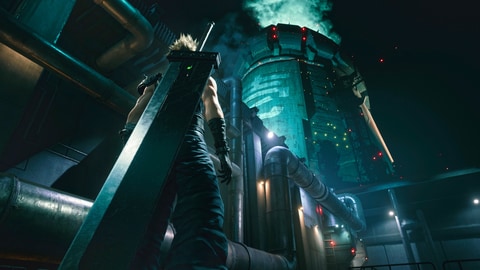 (Square Enix)
(Square Enix) Gene Park: This is surprisingly the most hopeful and bright-eyed game of the bunch. You can feel the elation of the writers toward the end as they steered the narrative into the unknown, mostly because anything is more optimistic than the real, original ending of the landmark PlayStation title. The audacity of “Final Fantasy VII Remake” is how it redefines itself while staying true to the original in so many respects.
2020
The Last of Us Part II
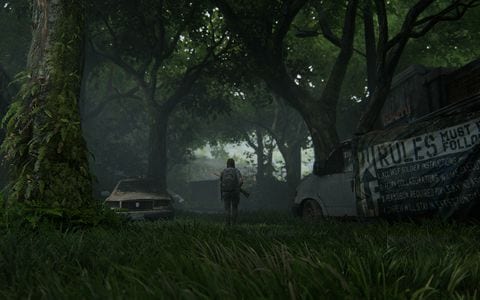 (Sony Interactive Entertainment)
(Sony Interactive Entertainment) Gene Park: Lost in the conversation about this game’s story and characters is just how darn amazing “The Last of Us Part II” is as an action game. Protagonists Ellie and Abby control like wasteland John Wicks, precise and brutal. While “Uncharted 4” and its spinoff saw Naughty Dog explore more open-ended areas, the sequel to “The Last of Us” expanded upon this more by giving almost every encounter this same sense of dangerous spontaneity. “The Last of Us Part II” isn’t just one of the best stories ever told in gaming, it’s also just one of the best action games ever made.
[The evolution of Ellie in ‘The Last of Us Part II’]
Elise Favis: No other game from 2020 had as much impact on me as “The Last of Us Part II.” I found myself coming to grips with questions I never expected, viewing Ellie in such a dramatically different way than the first game. She’s no hero. Ravaged by anger, she’s as much a monster as Joel was, despite his redemptive story in “The Last of Us.” I found myself siding with “villains” and detesting the “heroes” until finally I realized the two weren’t so different, both in ugliness and in goodness. Naughty Dog’s storytelling is brutal, sometimes so brutal it can be difficult to reconcile. But “The Last of Us Part II” is all about the cost of violence and the way it can shape us — sometimes in ways we’d rather not face, but need to in order to see past it.
2020
Ghost of Tsushima
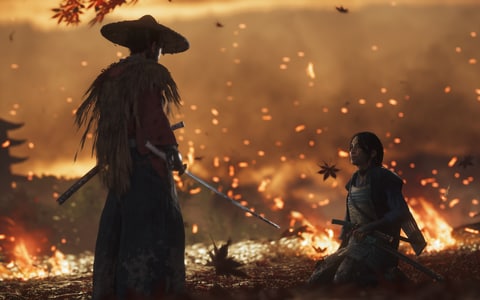 (Sony Interactive Entertainment)
(Sony Interactive Entertainment) Gene Park: This game is like the perfection of a formula. Sucker Punch Studios was able to winnow down the open-world adventure, popularized by games like “Assassin’s Creed” and “The Witcher 3,” by identifying the core elements of each, and simplifying them to something more pure, more honest. “Ghost of Tsushima” succeeds in giving players exactly what they hoped for: razor-sharp samurai action gameplay, framed with cinematic ambition. It’s also perhaps the most consistently beautiful game of the entire last console generation.
[‘Ghost of Tsushima’ feels like a new game on the PS5]
Elise Favis: “Ghost of Tsushima,” like “Death Stranding,” didn’t exactly hit home for me — but I can understand the appeal. The combat is solid and the world is beautiful to explore. But it also doesn’t do anything different or daring in the ways some other PlayStation exclusives on this list have. “Ghost of Tsushima” is exactly what you’d expect in a structured, open-world samurai game. That’s not a bad thing, but it failed to grip me in the ways I hoped.






